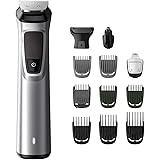Redmi Note 8 (Neptune Blue, 4GB RAM, 64GB Storage) | Snapdragon 665 Processor | 48 MP Quad Camera
(as of March 17, 2025 21:04 GMT +05:30 - More infoProduct prices and availability are accurate as of the date/time indicated and are subject to change. Any price and availability information displayed on [relevant Amazon Site(s), as applicable] at the time of purchase will apply to the purchase of this product.)Initial remarks
Welcome to our in-depth guide on naturally boosting your immune system! In this comprehensive post, we will delve into the intriguing area of immunity and examine 10 scientifically proven strategies for strengthening your body’s defenses against diseases. These techniques will not only provide you with the information to live a better life, but they will also help you outrank other websites on Google. We at [Your Website Name] feel that content quality is important, especially when it comes to crucial health information. So, let us begin on this instructive adventure and thoroughly investigate these fantastic immune-boosting measures.
1. Nourish Your Body with a Balanced Diet
The journey to a stronger immune system begins with the food we eat. A well-balanced and diverse diet is essential for providing our bodies with the necessary nutrients to function optimally, including supporting our immune response. The immune system is a complex network that relies heavily on vitamins, minerals, and antioxidants to maintain its efficiency. A diet rich in fruits, vegetables, whole grains, and lean proteins supplies these vital nutrients, bolstering our immune system’s ability to fend off infections and keep us healthy.
Fruits and vegetables are powerhouses of vitamins and antioxidants. Vitamin C, found abundantly in citrus fruits, berries, and leafy greens, plays a vital role in enhancing the function of immune cells. Vitamin E, another potent antioxidant present in nuts, seeds, and spinach, helps neutralize harmful free radicals and reduce inflammation.
Whole grains like brown rice, quinoa, and whole wheat provide essential nutrients like zinc, selenium, and magnesium that contribute to a robust immune response. Lean proteins, such as chicken, turkey, and beans, contain amino acids necessary for building and repairing immune cells.
2. Stay Hydrated
In the quest for a resilient immune system, hydration is often underestimated but is of utmost importance. Water is the lifeblood of our bodies, facilitating critical bodily functions, including supporting our immune system. Staying adequately hydrated allows our cells to function efficiently, flushing out toxins and aiding in the fight against infections. Dehydration can lead to decreased lymphatic circulation, compromising the body’s ability to remove waste and defend against harmful pathogens.
To stay hydrated, aim to drink at least eight glasses of water daily. Additionally, incorporating herbal teas, such as green tea or chamomile tea, can provide added hydration and an extra dose of antioxidants, further supporting your immune health.
3.Prioritize Quality Sleep
In today’s fast-paced world, sleep is often sacrificed in the pursuit of productivity and entertainment. However, quality sleep is a cornerstone of a strong immune system. During sleep, our body engages in essential repair and rejuvenation processes that are critical for optimal immune function. Lack of sleep can weaken our immune response, making us more susceptible to infections.
When we sleep, our body produces cytokines, a type of protein that helps regulate immune responses. These cytokines target infections and inflammation, supporting the body’s natural defense mechanisms. Additionally, sleep also enhances the production of antibodies and immune cells that protect us from various pathogens.
To prioritize quality sleep, establish a consistent sleep schedule, create a relaxing bedtime routine, and ensure your sleep environment is comfortable and conducive to rest.
4. Regular Physical Activity
Exercise is not only beneficial for our physical health but also has a profound impact on our immune system. Engaging in regular physical activity, even moderate-intensity workouts, can boost the circulation of immune cells, enhancing their efficiency in detecting and neutralizing harmful pathogens.
Physical activity has been shown to reduce inflammation and promote the production of endorphins, the feel-good hormones, which contribute to overall well-being and immune function. Regular exercise also helps manage weight, reducing the risk of obesity-related immune system complications.
Find an activity that brings you joy and suits your lifestyle. Whether it’s dancing, swimming, hiking, or yoga, incorporating exercise into your routine will undoubtedly benefit your immune health and overall quality of life.
5. Manage Stress Effectively
Stress has become an inherent part of modern life, and its effects on our immune system are undeniable. Chronic stress can have a detrimental impact on immune function, making us more susceptible to illnesses. The stress hormone cortisol, when elevated for extended periods, can suppress the immune response, leaving the body vulnerable to infections.
Finding effective ways to manage stress is crucial for maintaining a robust immune system. Incorporating mindfulness practices like meditation, deep breathing exercises, or spending time in nature can help lower stress hormones and improve immune function.
Meditation, in particular, has been shown to reduce inflammation and increase the activity of natural killer cells, immune cells responsible for fighting viruses and tumors. Engaging in regular mindfulness practices can significantly impact our immune health and overall well-being.
6. Add Probiotics to Your Diet
Our gut health plays a pivotal role in supporting our immune system. Probiotics, also known as “good bacteria,” are beneficial microorganisms that help maintain a balanced gut microbiome. A healthy gut flora is essential for regulating inflammation, promoting nutrient absorption, and protecting against harmful pathogens.
Probiotics work by promoting the production of short-chain fatty acids (SCFAs), which have anti-inflammatory effects on the body. These SCFAs regulate the immune response, preventing excessive inflammation and promoting a balanced immune system.
Include probiotic-rich foods like yogurt, kefir, sauerkraut, and kimchi in your diet to optimize your gut health and, consequently, enhance your immune function.
7. Embrace Herbal Support
Traditional medicine has long relied on the immune-boosting properties of certain herbs. Echinacea, elderberry, and astragalus are examples of herbal remedies known for their immune-enhancing effects. These herbs can activate and strengthen our body’s natural defense mechanisms, providing an extra layer of protection against infections.
Echinacea, for instance, has been shown to stimulate the production of white blood cells, which are integral to the immune response. Elderberry, on the other hand, contains antioxidants called anthocyanins, which have been found to reduce the duration and severity of cold and flu symptoms.
It’s important to note that while herbal remedies can be beneficial, it’s essential to consult with a healthcare professional before incorporating them into your routine, especially if you’re on any medications or have underlying health conditions.
8. Limit Sugar and Processed Foods
The modern diet is often filled with sugary treats and processed foods, which can have adverse effects on our immune systems. Excessive sugar consumption and processed meals can lead to inflammation and weaken our body’s ability to fend off infections.
Sugar, when consumed in large quantities, can suppress the immune response by interfering with the function of white blood cells. This compromises our body’s ability to detect and neutralize pathogens, leaving us more susceptible to illnesses.
Processed foods, on the other hand, are typically low in essential nutrients and high in unhealthy fats and additives. They offer little to no benefit to our immune system and can even contribute to imbalances in gut health, further compromising immunity.
Opt for whole, nutrient-rich foods instead. Vegetables, fruits, whole grains, and lean proteins not only provide vital nutrients for our immune system but also support overall health and well-being.
9. Get Adequate Vitamin D
Vitamin D, often referred to as the “sunshine vitamin,” is crucial for maintaining a healthy immune system. It plays a significant role in regulating the activity of immune cells and has been linked to a reduced risk of infections.
When our skin is exposed to sunlight, it synthesizes vitamin D, which then goes through several conversions in the liver and kidneys to become active. However, factors such as limited sunlight exposure, dark skin, and geographical location can contribute to vitamin D deficiency.
To ensure adequate vitamin D levels, aim to spend some time outdoors in the sun regularly. Sun exposure during the early morning or late afternoon is ideal, as the sun’s rays are less intense, reducing the risk of sunburn.
However, in regions with limited sunlight or during winter months, it may be necessary to consider vitamin D supplements. Before starting any supplementation, it’s essential to consult with a healthcare professional to determine the appropriate dosage for your individual needs.
10. Stay Hygienic and Practice Healthy Habits
Maintaining proper hygiene and adopting healthy habits are crucial for supporting our immune system and protecting ourselves from infections. Simple yet effective practices can significantly reduce the risk of illness and promote overall well-being.
Wash your hands frequently: Regular handwashing, especially before meals and after using the restroom, is one of the most effective ways to prevent the spread of germs and infections.
Avoid close contact with sick individuals: Viruses and bacteria can easily spread through close contact, so it’s essential to minimize exposure to individuals who are ill.
Refrain from smoking: Smoking weakens the immune system and increases the risk of respiratory infections. Quitting smoking can significantly improve immune function and overall health.
Limit alcohol intake: Excessive alcohol consumption can impair the immune response and lead to deficiencies in vital nutrients. Moderation is key to supporting a healthy immune system.
Maintain a healthy weight: Obesity can lead to chronic inflammation, which negatively affects immune function. Maintaining a healthy weight through a balanced diet and regular exercise can improve immune health.
Herbal medicines are another intriguing part of organically boosting your immune system. Rosemary, which is well-known for its myriad health advantages, is an excellent example of nature’s hidden gems. Check read our post on the Amazing Benefits of Rosemary: Unlocking Nature’s Hidden Treasures to learn more.
Wrap-up
In conclusion, enhancing your immune system naturally is within your reach with the implementation of these ten science-backed tips. The journey to a stronger immune system begins with nourishing your body with a balanced diet rich in fruits, vegetables, whole grains, and lean proteins. Staying hydrated, prioritizing quality sleep, engaging in regular physical activity, and effectively managing stress are all essential aspects of immune health.
In addition, incorporating probiotics into your diet, embracing herbal support, limiting sugar and processed foods, and ensuring adequate vitamin D levels are powerful strategies to strengthen your immune system.
By practicing good hygiene and adopting healthy habits, you can further safeguard yourself from infections and promote overall well-being.
Remember that immune health is a culmination of various factors, and each of these tips plays a vital role in optimizing your body’s natural defense mechanisms. Implementing these strategies consistently and with patience will undoubtedly lead to a healthier, more resilient you.
Now equipped with this wealth of knowledge, you have the power to take charge of your health and well-being. Empower yourself and those around you with this valuable information, as collectively, we can create a healthier, stronger community.







0 Comments